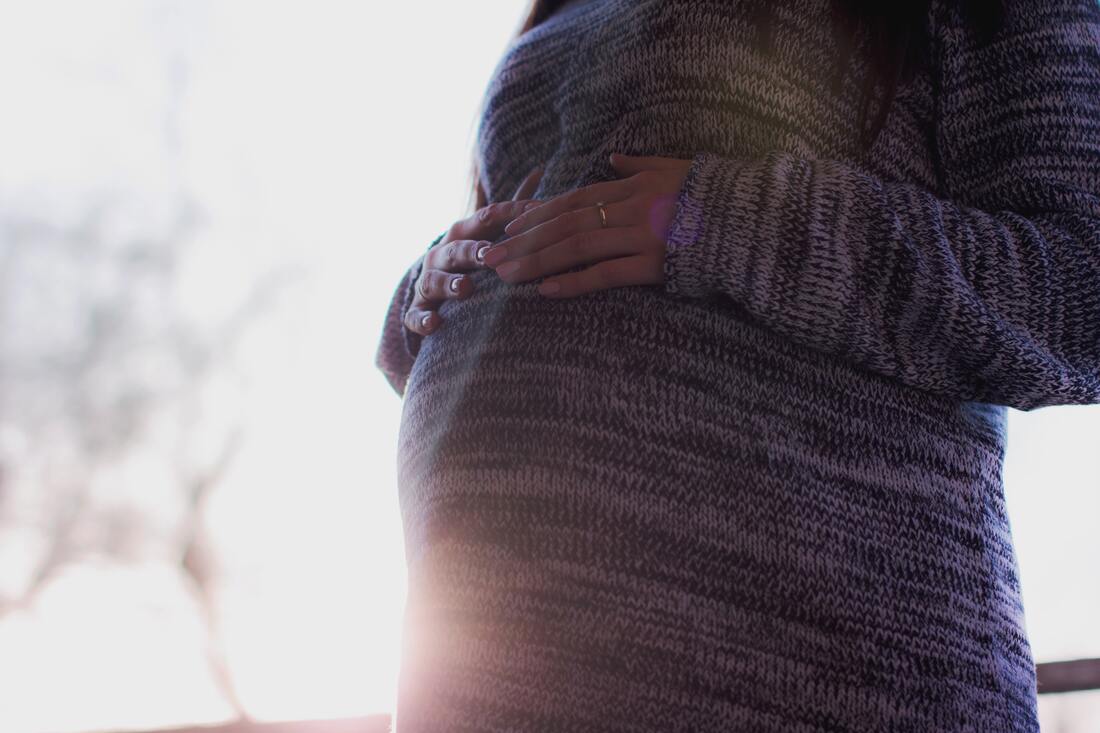General trauma (from falls, sprains or strains): Trauma is the most common cause of injury in pregnant women. It can occur at any time during pregnancy, but is most common in the third trimester when the baby's weight is putting extra strain on the body. Falls are relatively frequent, occurring in about 1 in 4 pregnant women. With your growing bump your organs move and centre of gravity shifts, causing altered biomechanics such as increased bending at the low back and a change of the position of the pelvis. Hormonal changes of pregnancy impact muscles and joints and can increase the likelihood of ligament injuries and insufficiency fractures.
Pelvic Girdle Pain (PGP): PGP may affect up to half of all pregnant women. It is caused by the pelvic bones moving asymmetrically resulting in decreased movement on one side of the pelvis and increased movement on the other side, the risk is higher as the baby grows. This can lead to pain in the hips, lower back, and buttocks. Symptoms can vary from woman to woman, but may include pain when standing or walking, difficulty climbing stairs or carrying objects, and a feeling of instability in the pelvic area. PGP during pregnancy is the highest predictor for pelvic pain post partum. So it is important to address PGP early in order to mitigate issues later on. Low Back Pain (LBP): LBP is another common problem during pregnancy, affecting up to three-quarters of all pregnant women. It is caused by the extra weight and pressure on the spine, as well as the changes in spinal biomechanics that occur during pregnancy. Symptoms may include pain in the lower back, buttocks, and legs, difficulty standing or walking, and a feeling of stiffness or tightness in the back. Sciatica: Sciatica is a condition that causes pain, tingling, and numbness in the back and legs. It is caused by compression or irritation of the sciatic nerve, which runs down the back of the leg. Sciatica most often occurs during the third trimester of pregnancy, when the baby's weight is putting extra pressure on the nerve. Restless Legs Syndrome (RLS): RLS is a condition that causes an uncontrollable urge to move the legs, often accompanied by a feeling of restlessness and discomfort. It most commonly occurs in the evening or at night, making it difficult to get a good night's sleep. RLS can also be very painful and cause muscle cramps. There is no one-size-fits-all treatment for restless legs syndrome, but physiotherapy can be very helpful in managing symptoms. Our physiotherapists will work with you to find strategies that help relieve your discomfort and allow you to get the sleep you need. For many pregnancy related conditions there is plenty you can do to prevent injury and pain from occurring in the first place! If you've found out your pregnant and are hoping to stay as fit, active and pain free is possible we have Prenatal Pilates and appointments with our physiotherapists and exercise physiologists to come up with an exercise plan! Suffering from any of the conditions above? We would love to help you move through the rest of your pregnancy pain free. Call our Tarragindi physiotherapy clinic on 07 3706 3407 or email [email protected] for more information. We would love to see you and your bump.
0 Comments
Leave a Reply. |

 RSS Feed
RSS Feed